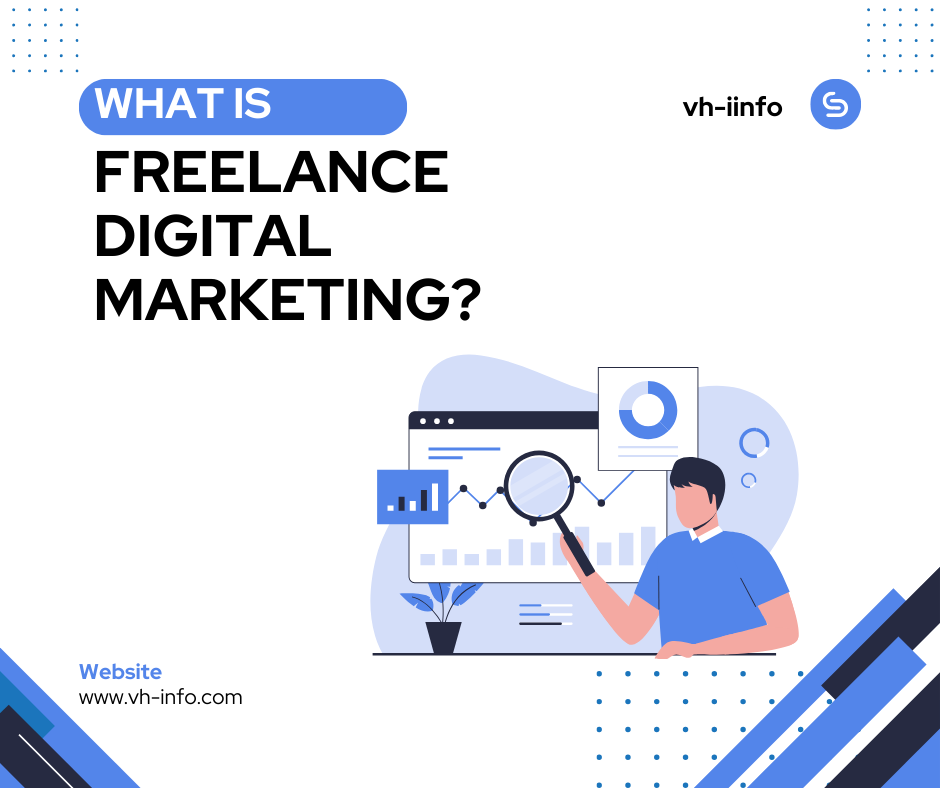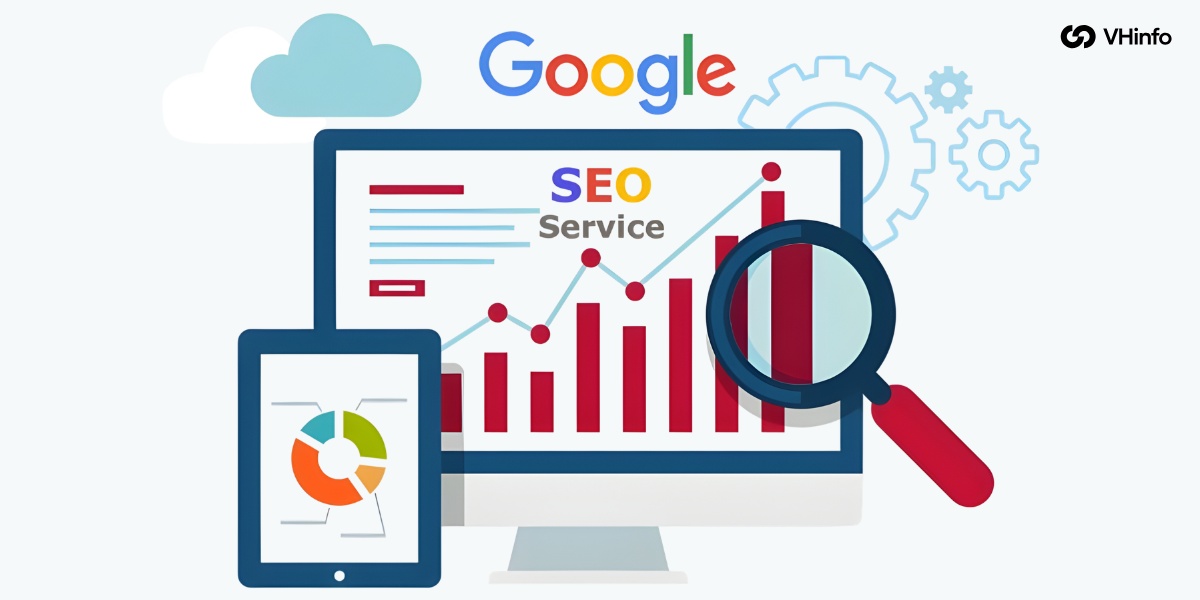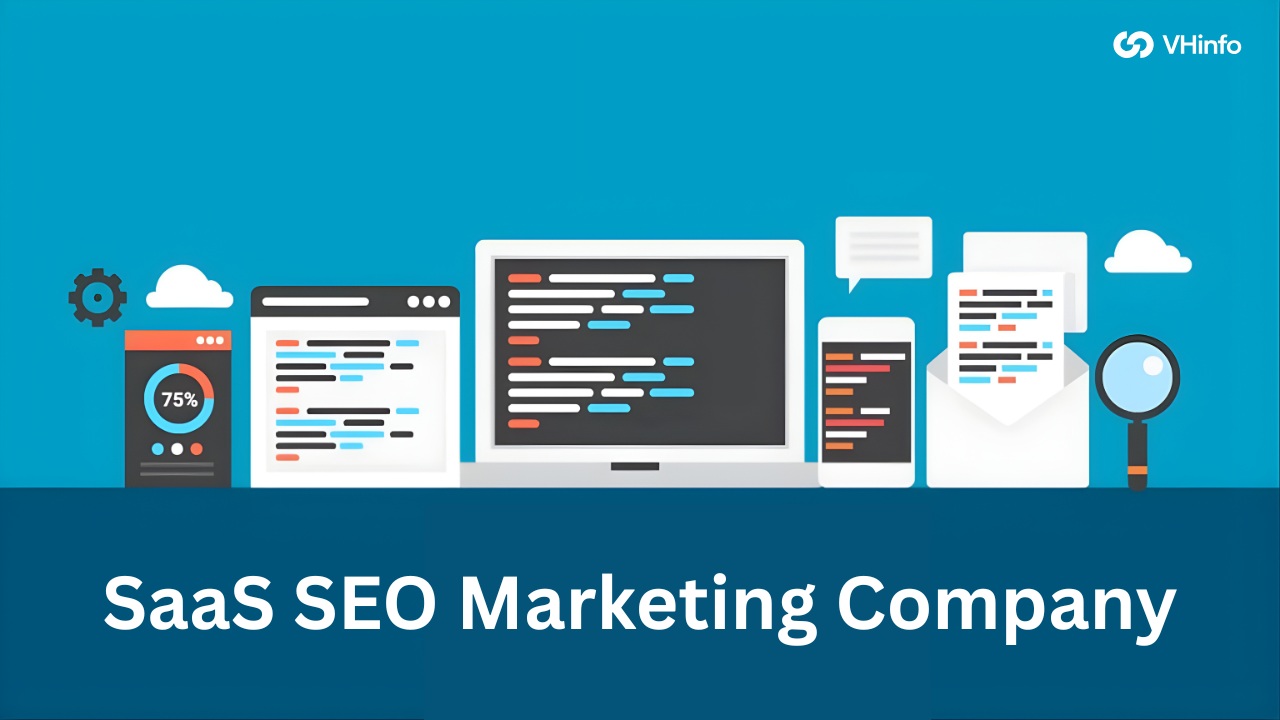Looking for a career that offers flexibility and the opportunity to work from home? Have you considered freelance digital marketing?
In this blog post, we will explain what freelance digital marketing is all about, how it differs from traditional freelancing, and what a freelance digital marketer does. We’ll also cover the essential skills you need to succeed in this field and how to start your own freelance digital marketing business.
Additionally, we will discuss some tips and tricks to make your freelancing journey more successful. Lastly, we will answer some frequently asked questions about becoming a freelance digital marketer. So let’s dive in and see if this career path is right for you!
What is Freelance Marketing?
Freelance marketing refers to marketing work done independently by a self-employed person, rather than by an employee of a company. Freelance marketers offer services to businesses on a project or contract basis.
They may help with things like creating marketing plans, managing social media accounts, designing promotional materials, writing website content, doing search engine optimization, running Google Ads campaigns, and more. Freelancers find clients and projects on their own rather than working for one set company.
They enjoy flexibility in their schedules and variety in their work. The “freelance” aspect means freedom and flexibility to pick their own clients and projects.
What is Freelance Digital Marketing?
Freelance digital marketing refers to digital marketing services provided by self-employed individuals, rather than digital marketing employees of a company. Freelance digital marketers, also known as Freelance digital marketing consultants, are independent contractors who offer their expertise in various digital marketing activities like search engine optimization, pay-per-click advertising, email marketing, social media marketing, content creation, and more.
Companies often opt for freelance digital marketing services when they have budget constraints or want a more specialized workforce for a limited period. Freelance digital marketers find their own clients and work on a project basis, giving them the freedom to choose when, where, and how they work.
They also get to experience variety by working with different types of clients and businesses. Freelance digital marketing, also known as online marketing, allows skilled digital marketers to monetize their expertise via independent contracting rather than traditional employment.
The difference between Freelancing and Digital Marketing

Here is a comparison of freelancing and digital marketing:
|
Category |
Freelancing |
Digital Marketing |
|
Definition |
Independent self-employment, working on short-term contracts and projects for various clients. | Using online and digital channels and platforms to promote and market a business, product, or service to reach and engage with target audiences. |
|
Work Arrangement |
Flexible, work-from-home, set your own hours. |
Often a standard full-time job but can also be freelance work. |
| Income | Inconsistent, depends on acquiring clients and projects. Need to estimate costs and set rates. |
Steady income from an employer or clients. Salary/fees can vary greatly. |
|
Skills |
Diverse skill set based on freelance niche (writing, design, programming etc.) Soft skills like communication and time management. |
Digital marketing skills like SEO, social media marketing, PPC, web analytics, email marketing etc. |
|
Clients |
Constantly finding and pitching to new clients is required. Juggling multiple clients at once. |
Typically working for one brand, business, or agency at a time. |
|
Career Progression |
Very self-driven. Need to market yourself and build a reputation over time. |
More structured. Can progress to managerial/leadership positions in companies. |
|
Pros |
Freedom, flexibility, be your own boss. Broad skill development. |
Specialized skill set. Company benefits like insurance. Room for advancement. |
|
Cons |
Unpredictable income. Lack of structure or guidance. Need to handle all admin tasks. |
Less control over schedule. Office politics. Dependent on employer. |
What does a Freelance Digital Marketer do?
Here is a brief overview of what a freelance digital marketer typically does:
- Works independently and finds their own clients, rather than being employed by one company
- Offers digital marketing services to businesses on a project or contract basis
- Helps create and implement digital marketing strategies across platforms like social media, email, SEO, PPC ads, PPC analytics, content marketing, etc.
- Manages and optimizes digital marketing campaigns to increase brand awareness, traffic, leads and sales
- Designs and produces engaging social media posts, emails, online ads, website content, etc.
- Analyzes campaign performance using metrics and analytics to identify improvements
- Stays up-to-date on digital marketing best practices and emerging trends
- Maintains strong communication with clients to understand their business and goals
- Manages own schedule and workload, being self-motivated and organized
- Handles the business aspects of freelancing, like marketing services, billing, etc.
Why I Chose Digital Marketing As a Career Path?
In this part, I’ll share why I started my journey as a freelance digital marketer.
As a freelance digital marketing freelancer, I chose digital marketing as my career path because I found it exciting and fast-paced.
Well you see, Digital marketing is constantly evolving with new trends and technologies, so it provides me with lots of opportunities to continuously learn and expand my skills. I enjoy the creative, analytical, and strategic aspects of digital marketing, from designing engaging social media posts to analyzing data and metrics.
Digital marketing roles also allow me to leverage my strengths in communication, project management, and problem-solving. Whether working independently or collaborating with teams, I can utilize my skills in a role with variety, challenges, and impact.
I’m drawn to how digital marketing allows me to creatively engage audiences and quantitatively drive real business results. I see lots of career growth potential in the digital space and look forward to continually growing as a digital marketing professional.
Freelance Digital Marketing From Home
Freelance digital marketing from home involves providing digital marketing services to clients as an independent contractor rather than as an employee of one company.
It allows skilled digital marketers to leverage their expertise in a flexible remote setting. Key tasks include collaborating with clients to create and optimize digital campaigns across platforms like search, social media, email, and websites.
Freelance digital marketers manage the strategy, content creation, ad management, and analytics of digital marketing initiatives for various clients while working comfortably from home. They enjoy setting their own schedules and hand-picking interesting projects.
While freelancing from home, digital marketers must be disciplined, motivated, and skilled at communicating virtually. With the right mix of digital marketing expertise, business savvy, and passion for remote work, freelancing from home can be an ideal path that allows for a productive and profitable digital marketing career.
What skills do you need to become a Freelance Digital Marketer?

To become a Freelance Digital Marketer, you need to acquire skills which are mentioned below:
Content writing and Copywriting
To be a freelancer, you should have excellent writing skills to create good content for websites, social media posts, ads, emails, etc. Great writing involves crafting messages that interest audiences and encourage them to act.
When creating content, think about your target audience’s likes and make your message easy to understand by using simple words. Avoid using jargon or technical terms unfamiliar to your audience. Check your content for errors before publishing it so that it conveys your intended message clearly.
Graphic Designing + Video Editing
Visual content is an essential component of branding and engagement. The ability to design graphics, such as social media graphics, ads, and presentations, through graphic design skills can be a game-changer for your brand.
Video editing also plays a significant role in producing engaging marketing videos that capture the attention of your target audience. By leveraging these skills, you can create visually appealing content that resonates with your audience and enhances their overall experience with your brand.
Search engine marketing (SEM) [SEO+PPC
Search engine marketing (SEM) refers to strategies and techniques for promoting a website in search engine results pages through both paid and unpaid methods.
The two main SEM components are search engine optimization (SEO), which involves optimizing websites to rank highly in organic search results, and pay-per-click (PPC) advertising, which places ads on search engine results pages and charges when users click them. SEM aims to boost a website’s visibility and traffic from target search queries through both SEO and PPC.
Having a strong understanding of search engine optimization (SEO) and pay-per-click (PPC) advertising can significantly improve your brand’s visibility and drive traffic to your website via search engines such as Google.
The main thing is optimizing your website for relevant keywords, creating high-quality content, building quality backlinks (contact us if you need help with this!), and improving user experience, you can improve your organic search rankings.
Additionally, running targeted PPC campaigns can help you reach your target audience more effectively by displaying ads to users who are actively searching for products or services like yours.
Combining both SEO and PPC strategies, you can create a comprehensive search engine marketing plan that includes keyword research, delivers results, and helps you achieve your business goals.
Social media Marketing & Management
To run effective social media campaigns, you must understand the different platforms. It’s important to create content that resonates with your audience, engage with them, and analyze your performance.
Each platform has its own unique features, audience demographic, and communication style. LinkedIn is for professional networking, while Instagram targets younger audiences with visual content.
Understanding these differences helps tailor your strategies for each platform. Analyzing your performance provides insights to refine and improve your social media efforts.
Marketing Analytics
Data and analytics play a vital role in optimizing marketing campaigns. Understanding web analytics, A/B testing, and metrics to measure marketing ROI is crucial.
Just by analyzing data, you can derive insights that help tailor your marketing strategy to achieve the desired results. Web analytics provide valuable information about website traffic, user behavior, and engagement levels. A/B testing helps determine which version of an ad or landing page performs better.
Metrics like click-through rates, conversion rates, and cost per acquisition allow you to quantify the success of your campaign and make data-driven decisions for future optimizations. Incorporating data and analytics into your marketing strategy can lead to more effective campaigns and increased ROI.
Business skills
Being a freelancer requires more than just excellent skills in your field. You also need business acumen to market your services, estimate costs, and bill clients appropriately. Good financial management skills and effective rate negotiation are essential.
Self-discipline is crucial when working remotely without the structure of an office environment. Establishing a consistent routine is important for staying focused and productive.
Strong communication skills are necessary for building client relationships and understanding their needs. Effective communication helps prevent misunderstandings and ensures projects are completed on time and within budget. Building a network of industry contacts can also help you find new clients and grow your business. Success as a freelancer requires technical expertise, business acumen, self-discipline, and communication skills.
How to start Freelance Digital Marketing?

To start freelance digital marketing, follow the steps mentioned below:
- Step 1: Establish your niche – Determine the specific areas of digital marketing you want to specialize in as a freelancer. This could be social media marketing, SEM, email marketing, etc. Having a defined niche makes it easier to market yourself and attract ideal clients.
- Step 2: Build a portfolio – Create a portfolio showcasing your digital marketing work and skills. Include case studies, client testimonials, sample reports, campaign results, creative examples, etc. A strong portfolio shows proof of your abilities.
- Step 3: Find a network – Network both online and locally to make contacts that could become future clients. Attend marketing events, join LinkedIn groups, and connect with agencies and other freelancers.
- Step 4: Promote your business – Actively promote your freelance services through channels like social media, blogging, speaking events, writing guest posts, etc. Consistent self-promotion is critical for finding new clients.
- Step 5: Make it legal – Set up the necessary legal and financial aspects of your freelance business like registering as a sole proprietorship, getting business insurance, setting up billing systems, and more. You can use a reputable business formation service like Inc Authority review by GovDocFiling, which has a free formation package. This makes your business legitimate.
- Step 6: Continuously develop your skills – Being a successful freelancer means constantly learning new marketing tactics, tools, and trends to expand your offerings over time. Make learning a daily habit.
Freelance Digital Marketing Tips

When it comes to freelance digital marketing, there are several tips that can help you succeed in this unique field.
- Set boundaries – Establish boundaries regarding when and how clients can contact you, how much you work per week, taking time off, etc. Clear boundaries help avoid burnout and maintain a healthy work-life balance as a freelancer.
- Keep learning – Proactively learn new skills, tools, and digital marketing trends. Reading blogs, taking courses, attending events, etc will help you expand your expertise. This will make you more competitive and allow you to offer new services.
- Take breaks frequently – Make sure to take short breaks during work to recharge. Take a walk, grab a snack, and respond to personal messages. Breaks boost productivity and creativity needed for digital marketing work.
- Raise your rates regularly – As you gain more experience and expertise, raise your fees periodically. Research rates other freelancers charge. Higher earnings allow you to work less and be more selective with projects.
- Automate where possible – Automate repetitive tasks like reporting, follow-ups, publishing, etc. This saves time and gives you space to focus on big-picture strategy and creative work.
- Collaborate – Partner with other freelancers to jointly offer services and tackle bigger projects. Collaborating expands capabilities and allows each freelancer to play to their strengths.
Pros and Cons of Becoming a Freelance Digital Marketer

Here are some of the key pros and cons of becoming a freelance digital marketer:
Pros
- Flexible schedule and location – You choose when, where, and how much you work.
- Freedom and independence – You pick your own clients and projects. No boss to report to.
- Variety of work – Projects and clients change often to keep things fresh.
- Skill development – Continuous learning to keep skills sharp and offer new services.
- Unlimited earning potential – No income ceilings as a freelancer. Earnings based on work acquired.
- Low overhead costs – Typically low start-up and operational costs.
- Creative freedom – Freelancers have lots of room for creativity in their work.
Cons
- Inconsistent income – Income can fluctuate month-to-month depending on projects.
- Benefits and stability – No company-sponsored benefits like insurance, paid vacation, etc.
- Isolation – Working alone from home can be socially isolating for some.
- Self-motivation – Success requires discipline without a boss overseeing work.
- Administrative tasks – Time spent looking for clients and on billing/paperwork.
- Competition – Competing against many other freelance marketers for projects.
- Long Hours – Tendency to overwork when self-employed. Harder to disconnect.
Is Freelance Digital Marketing legit?
Yes, freelance digital marketing is absolutely a legitimate career path. It involves providing digital marketing services as an independent contractor. Skilled professionals offer in-demand skills like social media marketing, search optimization, paid ads, and web analytics to clients on a project basis. They find clients through networking and digital platforms and earn income by billing for their services.
With hard work, skill, and professionalism, freelance digital marketers can build successful careers serving various businesses. Some even grow from freelancing to building full marketing agencies. It’s a legitimate path for qualified professionals. For those seeking guidance in establishing their own agency, they can visit Sortlist, an online platform connecting businesses with marketing agencies tailored to their needs.
Is Freelance Digital Marketing for you?

Freelance digital marketing is a great career if you like marketing, working alone, and looking for clients in the expanding digital marketing industry. It needs self-motivation, control, and openness to learn new skills.
To succeed, you need good communication and time management skills and the ability to be your own boss. While earnings can change, freelancing allows freedom and flexibility in your work.
To know if freelance digital marketing is right for you, think about your skills, work style, and business sense.
VH-info’s Top 10 Tips For Avoiding Online Scams as a Freelance Digital Marketer
Here are some of our best tips for freelance digital marketers to avoid online scams:
- Vet new clients thoroughly – Check their website, reviews, and social media, and look for red flags. Ask for references from past freelancers they’ve worked with.
- Never pay upfront fees – Avoid “job offers” that ask for payment for training or software. Get paid only after providing services.
- Use escrow payments for large projects – Escrow services hold payment until work is complete, adding protection.
- Avoid overpayment scams – Reject payments in excess that ask you to wire back the difference.
- Don’t click suspicious links/attachments – Use caution opening links and files from unknown senders.
- Video call new clients – It’s harder to fake identity over video chat compared to email only.
- Get all agreements in writing – Have contracts, scope of work, and payment terms detailed in writing.
- Trust your instincts – If an offer seems too good to be true or makes you uneasy, walk away.
- Use secure payment methods – Avoid shady methods. Use services like PayPal that offer fraud protection.
- Monitor payments closely – Watch for clients reversing payments or unauthorized charges.
Staying vigilant and trusting your gut instinct will help you avoid falling victim to scams as a freelance digital marketer. Do your due diligence on all clients and opportunities.
How much does a Freelance Digital Marketer make?
Freelance digital marketers make $30-$100 per hour, and top earners make over $150 per hour. Incomes range from $50,000 to $100,000 per year. Income depends on niche skill sets, demand, experience level, portfolio strength, business skills, and rates charged.
Skilled freelancers in conversion rate optimization or influencer marketing can charge more. Income may fluctuate due to project-based work, but digital marketers can earn good wages independently by setting their own hourly rate. Hard work and persistence can lead to six-figure incomes.
FAQ’s:
What does a freelance digital marketer actually do?
A freelance digital marketer works independently to provide various digital marketing services to clients on a project basis. Their work includes activities like managing social media accounts, running search and display ads through platforms like Facebook Ads, doing SEO, analyzing campaign metrics, creating content, email marketing through personalized emails, and optimizing websites.
Freelancers find their own clients and handle the business aspects of self-employment, including building a personal website to showcase their skills and attract potential clients.
How much could you earn as a freelance digital marketer?
As a freelance digital marketer, you could potentially earn $50,000 to $100,000 or more per year, depending on your niche skills, experience level, portfolio, business acumen, and rates charged. Top freelance digital marketers can command over $100 per hour, allowing you to potentially earn a high income while dedicating less time to work in the United States. With diligence, expertise, and effective self-promotion, six-figure freelance incomes are certainly possible in this field of digital marketing skills.
Can I do freelancing with digital marketing?
Yes, you can definitely do freelancing in the field of digital marketing. Many skilled digital marketers choose to work independently as freelancers, offering services like social media marketing, search engine optimization, pay-per-click ads, web analytics, content creation, email marketing, and more to clients on a project basis.
With expertise in one or more digital marketing areas and strong business skills, freelancing can be a rewarding career path.
How do digital freelancers make money?
Digital freelancers make money by charging clients for services like social media management, search engine optimization, pay-per-click advertising, content creation, web analytics, and more. Freelancers set their own rates based on factors like skill level, demand, and experience.
They earn income by billing clients on an hourly or project basis for the digital marketing services provided. Freelancers find clients through networking, marketing their services, and digital platforms connecting independent talent with companies, building a loyal client base through referrals and testimonials.
The best way for freelancers to determine their rates is by dividing what they want to earn in a month by the number of hours they are willing to work per month. As a freelancer, it is important to also consider the cost of health insurance and retirement accounts, as these benefits are not provided by an employer.
How do I become a digital marketer with no experience?
Here are a few tips to become a digital marketer with no experience:
- Take online courses and certifications to build skills in areas like social media marketing, SEO, PPC, analytics, etc.
- Create marketing content and campaigns for fictional or personal brands to build a portfolio.
- Look for internship opportunities at digital marketing agencies to gain hands-on experience.
- Enhance your resume by leveraging volunteer marketing roles for nonprofits, utilizing tools like resume maker for professional presentation.
- Consider starting as an assistant at a digital marketing agency to learn on the job.
- Network consistently and pursue entry-level digital marketing roles to get your foot in the door.
What skills are required for freelance digital marketing?
The key skills required for freelance digital marketing include content writing, graphic design, search engine optimization (SEO), pay-per-click (PPC) ads, social media marketing, data analytics, project management, communication, and business/entrepreneurial abilities.
A mix of creative, analytical, and business skills is needed to succeed as a freelance digital marketer.
Conclusion
In conclusion, freelancing in digital marketing offers flexibility, independence, and the opportunity to work on a diverse range of projects. It allows you to showcase your skills and build a strong portfolio while earning a competitive income. However, it’s important to set boundaries, continuously improve your skills, and take breaks to avoid burnout.
Before diving into freelance digital marketing, make sure to establish your niche, build a portfolio, find a network, promote your business, and ensure legal compliance. While there are scams to be aware of, freelancing in digital marketing is a legitimate career path that can lead to financial success and personal fulfillment. If you have any queries or want to share your experience, please leave a comment below.



